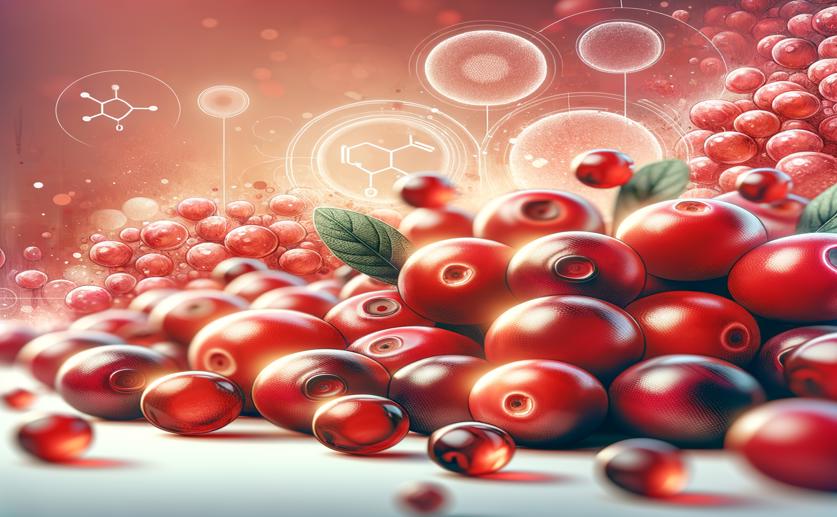
Cranberry Extract Boosts Good Bacteria in the Gut
Jenn Hoskins
7th March, 2024

Image Source: Natural Science News, 2024
Key Findings
- Laval University study found cranberry extract boosts good gut bacteria in humans
- The extract increased butyrate, a beneficial compound for gut health
- Individual gut bacteria types influenced how much one benefited from cranberries
References
Main Study
1) Short term supplementation with cranberry extract modulates gut microbiota in human and displays a bifidogenic effect.
Published 6th March, 2024
https://doi.org/10.1038/s41522-024-00493-w
Related Studies
2) Butyrate's role in human health and the current progress towards its clinical application to treat gastrointestinal disease.
3) Predicting butyrate- and propionate-forming bacteria of gut microbiota from sequencing data.
4) Cranberries for preventing urinary tract infections.



 29th February, 2024 | Greg Howard
29th February, 2024 | Greg Howard